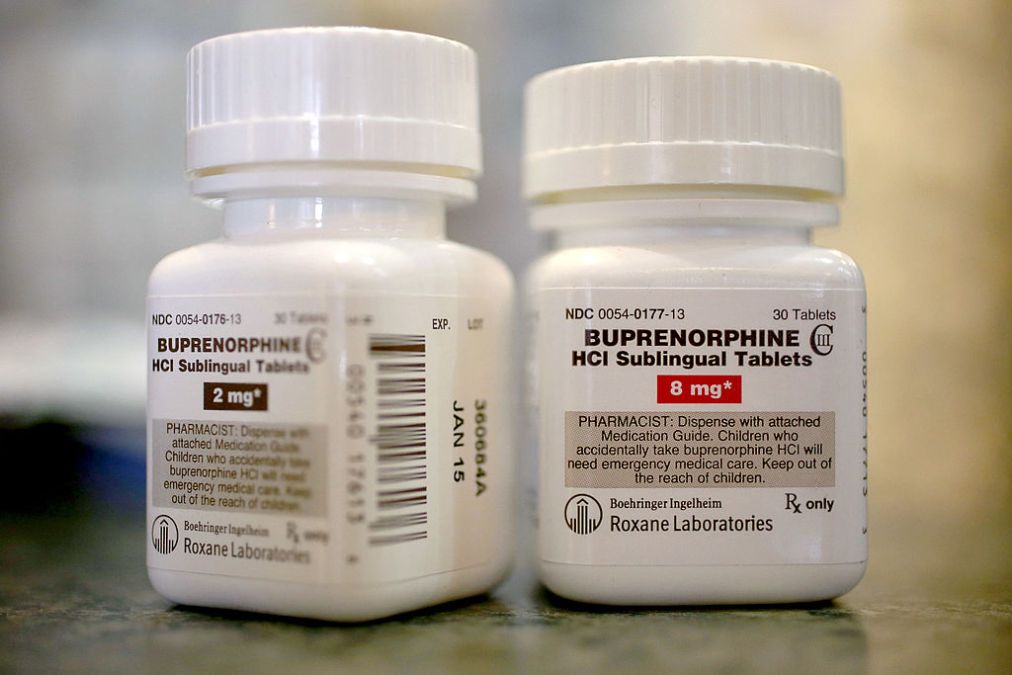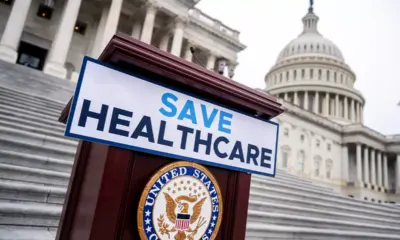Health
Trump’s New Law Could Lead to 1,000 Additional Overdose Deaths

A recent tax and spending package signed into law by President Donald Trump may significantly impact access to treatment for opioid use disorder, potentially leading to an estimated 1,000 additional overdose deaths annually. Researchers have raised concerns that the sweeping changes introduced by this legislation, often referred to as the “Big Beautiful Bill,” could reverse progress made in reducing fatal overdoses.
Fatal overdoses have seen a decline since reaching a record high in 2022, with public health initiatives credited for this positive trend. These initiatives included expanded access to treatments and efforts to reduce stigma surrounding opioid addiction. Yet, experts are now warning that the new legislation could undo these advancements.
The day before the bill was passed in the House, a group of researchers sent a memo to House Speaker Mike Johnson and Senate Majority Leader John Thune. They estimated that the legislation would result in approximately 156,000 individuals losing access to treatment for opioid use disorder. The day following its passage, the bill was signed into law by Trump.
Dr. Benjamin Linas, the lead researcher behind the memo and a professor of medicine and epidemiology at Boston University, expressed his frustration, stating, “I think it’s a terrible policy. I think it’s doing nothing but making America unhealthy and increasing misery.”
The provisions of the bill affecting Medicaid are projected to leave around 7.8 million individuals without health insurance by 2034. The Congressional Budget Office provided this estimate, which Linas and his colleagues used to project the potential loss of access to medications for opioid use disorder. Their simulation modeling suggested that this loss of treatment could result in an increase in overdose fatalities.
Linas noted that the figure of 1,000 additional deaths might be conservative, as it only considered individuals losing access to opioid medications, excluding other health complications that could arise from the loss of health insurance, such as infections or heart disease. He emphasized that when patients cannot access their preferred treatment, the likelihood of effective care diminishes, leading to further health crises.
Dr. Stephen Taylor, President of the American Society of Addiction Medicine (ASAM), although not involved in the memo, acknowledged the researchers’ findings as reasonable. He mentioned that while the effects of the bill will differ across states, it does include provisions for individuals with substance use disorders, such as exemptions from work requirements. Taylor emphasized the importance of ensuring that these exemptions are implemented effectively to prevent loss of essential coverage.
Despite these provisions, Linas highlighted the challenges faced by those struggling with addiction, many of whom are undiagnosed and may find it difficult to access exemptions.
According to data from the U.S. Centers for Disease Control and Prevention (CDC), overdose deaths in the United States declined by nearly 27% from 2023 to 2024, amounting to approximately 81 lives saved each day. Specifically, opioid-related fatalities dropped from roughly 83,140 in 2023 to 54,743 in 2024. The CDC noted that federal efforts to combat the opioid crisis intensified after Trump declared it a public health emergency in October 2017.
Since Trump began his second term in January 2021, his administration has proposed significant cuts to programs dedicated to addiction treatment and research. Critics argue that the administration’s focus on combating drug trafficking has overlooked the vital need for comprehensive public health strategies to address addiction.
Linas remarked that attributing the decline in overdose deaths solely to law enforcement efforts at the border is misleading. He asserts that the decline should be credited to the bolstered public health measures that have been implemented in recent years.
The potential consequences of the new tax and spending package serve as a reflection of broader issues within the Trump Administration’s governance. “After working so hard and seeing progress, to take such a step back is really depressing,” Linas stated. “It’s also a microcosm of the total chaos that this Administration imposes on all of us.” He emphasized the need for consistent investment in public health to continue reversing the overdose epidemic, rather than taking steps backward that could lead to increased suffering and loss of life.
-

 Technology5 months ago
Technology5 months agoDiscover the Top 10 Calorie Counting Apps of 2025
-

 Health3 months ago
Health3 months agoBella Hadid Shares Health Update After Treatment for Lyme Disease
-

 Health3 months ago
Health3 months agoErin Bates Shares Recovery Update Following Sepsis Complications
-

 Technology4 months ago
Technology4 months agoDiscover How to Reverse Image Search Using ChatGPT Effortlessly
-

 Technology1 month ago
Technology1 month agoDiscover 2025’s Top GPUs for Exceptional 4K Gaming Performance
-

 Technology3 months ago
Technology3 months agoElectric Moto Influencer Surronster Arrested in Tijuana
-

 Technology5 months ago
Technology5 months agoMeta Initiates $60B AI Data Center Expansion, Starting in Ohio
-

 Technology5 months ago
Technology5 months agoRecovering a Suspended TikTok Account: A Step-by-Step Guide
-

 Health4 months ago
Health4 months agoTested: Rab Firewall Mountain Jacket Survives Harsh Conditions
-

 Lifestyle5 months ago
Lifestyle5 months agoBelton Family Reunites After Daughter Survives Hill Country Floods
-

 Health3 months ago
Health3 months agoAnalysts Project Stronger Growth for Apple’s iPhone 17 Lineup
-

 Technology4 months ago
Technology4 months agoHarmonic Launches AI Chatbot App to Transform Mathematical Reasoning





















